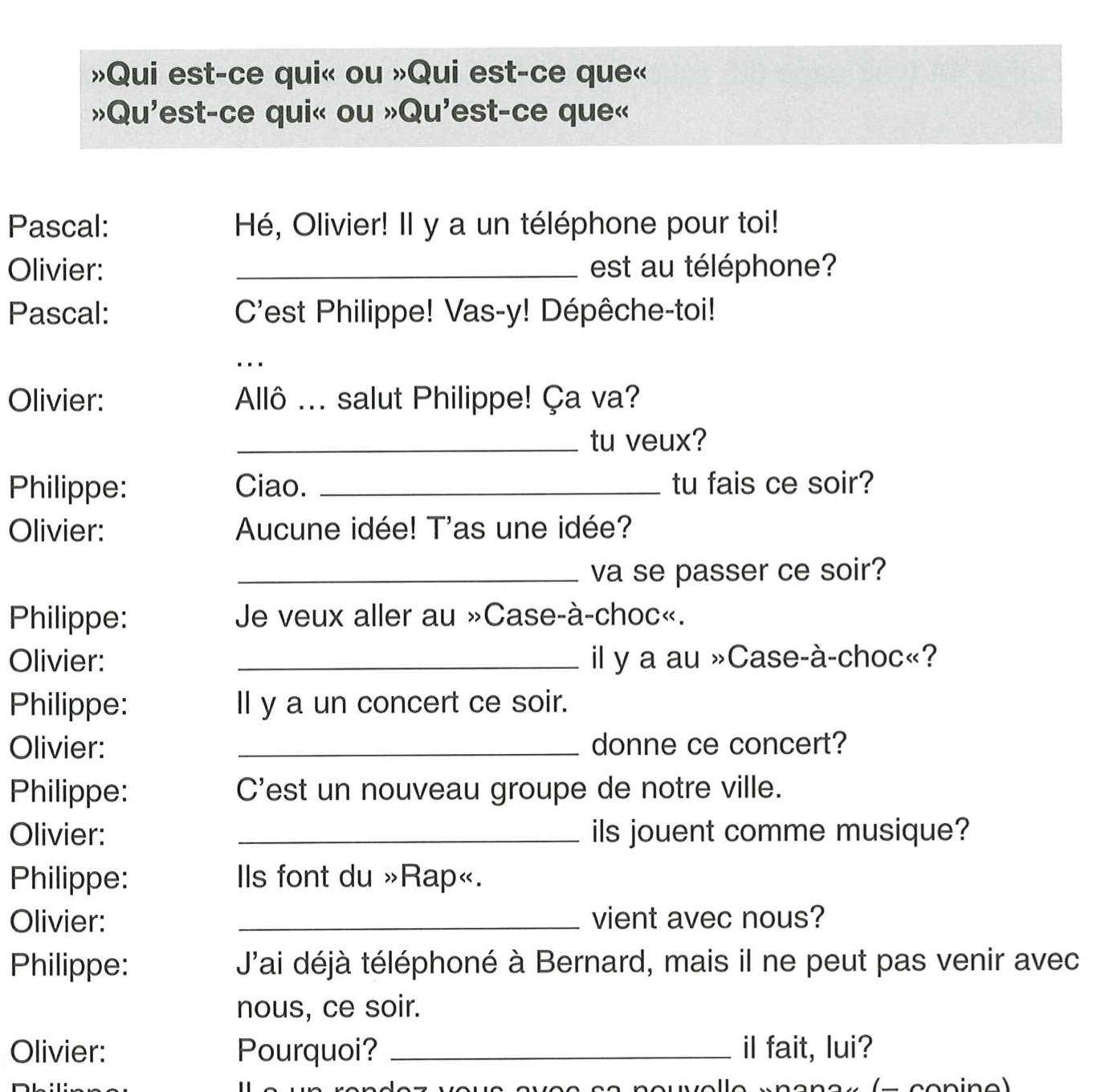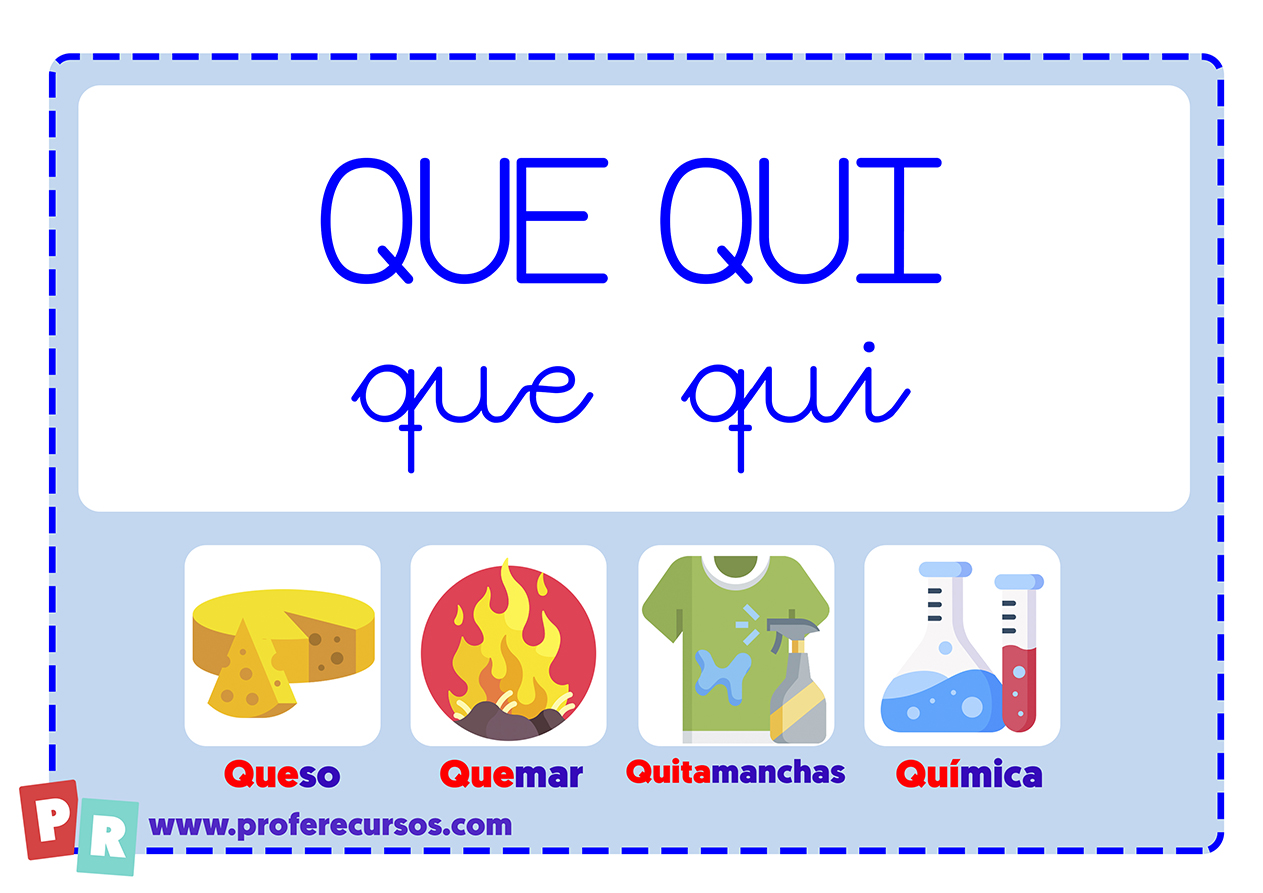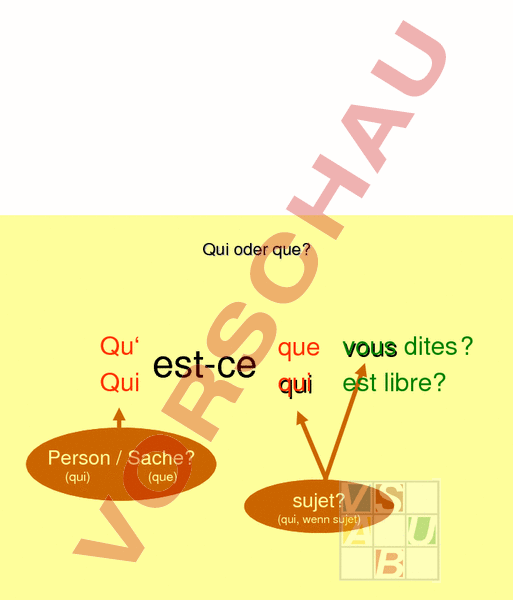
Pin auf Französisch Sekundarstufe Unterrichtsmaterialien
Qui is a subject pronoun, it replaces the subject of the sentence. Example: Je prends le train. Le train va à Paris. I'm taking the train. The train is going to Paris. In order to avoid repeating « le train », you can use a relative pronoun. In that sentence, "le train" is the subject. You can therefore create one single sentence out.

ce qui und ce que Französische Grammatik erklärt YouTube
In French, you can't simply say "The year that I arrived" instead, you must say "The year when I arrived". Since you seem a bit confused as to the roles of "où", "que" and qui, allow me to offer a bit more information to help make things clear. The french word "que", when it is used to bridge two clauses (sentence fragments), stands in for the.

Que Qui E91
Qui often means "who" when employed as part of a question. Qui is used in prepositional phrases. How to Use Que in French. Que is used to stand for the object of a subordinate clause. Que means "what" when used in a question. Que can also mean "only.". Using Que in the Passé Composé. Using Qui in the Passé Composé.

Qui or QUE ? A Cup of French
Qui ist immer Subjekt des Relativsatzes und ersetzt Personen oder Sachen. Da es zu den unveränderlichen Relativpronomen gehört, steht es für männliche und weibliche Nomen im Singular und Plural.. Dem direkten Objekt entspricht in etwa das deutsche Akkusativobjekt (Wen? oder Was?). In einem Relativsatz wird es durch que vertreten. Wie auch qui ersetzt que Personen und Gegenstände und ist.

Einfach erklärt QUI, QUE oder OÙ ?! Die französischen Relativsätze // FRANZÖSISCH mit
At the beginning of a question, usually means "who" and que typically means "what". This is what French learners typically think each word means. However, either word can mean "who" or "that". In fact, don't translate directly to any one English word. That's because qui and que are also what's called relative pronouns.

Fragen Mit Qui Und Que Übungen
Relative Pronouns. Like Adjectives, relative clauses provide additional information about whatever they are paired up with. volume_up. L'étoile qui a explosé est visible à l'oeil nu. The star that exploded is visible to the naked eye.. The relative pronoun reflects the nature of the role that the modified noun (also know as the antecedent.

Ideen fur Ce Qui Ce Que übungen
Je lis un livre. Ce livre est intéressant. Le livre QUE je lis est intéressant. = The book (that) I'm reading is interesting. QUE devient QU' devant un mot qui commence par une voyelle ou un H muet. QUE becomes QU' in front of a word beginning with a vowel or a mute H. Le livre qu'il lit est intéressant. = The book he is reading is.

Относительные местоимения qui и que Французский для начинающих на сайте kartinkifr.ru
As you know now, the relative pronoun QUI is for subjects and QUE for objects. In other words, in a sentences with the relative pronoun QUE, you have 2 different subjects. If you identify the 2 subjects, you know for sure you're going to use QUE to link them. However when you connect them, you'll have a subject and an object.

Französisch Qu'estce qui oder Qu'estce que? (Klausur)
By ThoughtCo Team. Updated on October 22, 2019. French has three interrogative pronouns: qui, que, and lequel, which are used to ask questions. They all have differences in meaning and usage. Note that lequel is a more complicated case and, as such, is addressed separately. Also, while qui and que are also relative pronouns , we are only.

Pin auf Französisch Sekundarstufe Unterrichtsmaterialien
En résumé : Que vs Qui. As a relative pronoun, que is a direct object (person or thing), and qui is either a subject (person or thing) or the object of a preposition (person only). Some teachers will tell you that the difference is much simpler: " Qui is always followed by a verb, que is followed by any other part of speech."

Pin auf Französisch Sekundarstufe Unterrichtsmaterialien
Qui and Que . Qui and que are the most often confused relative pronouns, probably because one of the first things French students learn is that qui means "who" and que means "that" or "what."In fact, this is not always the case. The choice between qui and que as a relative pronoun has nothing to do with the meaning in English, and everything to do with how the word is used; that is, what part.

Palabras con Que y Qui
Here, "qui" refers to the person being asked. When to use "que": "Que" is used to refer to the direct object of the sentence, meaning the person or thing that the action is being performed on. For example: "Paul mange une pomme" (Paul is eating an apple). Here, "une pomme" (an apple) is the direct object, so "que" can be.

Hervorheben im Französischen c'est...qui oder c'est...que Französisch Grammatik YouTube
Quiz Yourself on Que vs Qui. At the end of every lesson you can do a small quiz. You will see the sentences of the previous chapter. You will either need to fill in the blanks, choose the correct multiple choice option, or both. Once you are done the correct answer will be shown. You can redo the quiz as many times as you want!

Arbeitsblatt Qui oder que in der Frage Französisch Grammatik
Qui can refer to people or things and is used as the subject of a dependent clause. Because qui becomes the subject of the sentence it is always followed by a conjugated verb and must agree in number with the antecedent it is referring to. « On critique les films qui montrent trop de nudité. » → "People criticize films that display too.

Relativsätze im Französischen Qui, que, ce qui oder ce que? Ein Überblicksvideo Französisch
Mon frère, qui a vingt ans, est à l'université.My brother, who's twenty, is at university. Est-ce qu'il y a un bus qui va au centre-ville? Is there a bus that goes to the town centre? Les amis que je vois le plus sont Léa et Mehdi. The friends (that) I see most are Léa and Mehdi. Voilà la maison que nous voulons acheter. That's the house (which) we want to buy.

Französisch lernen QUI oder QUE? Der Unterschied! YouTube
National 5; Relative pronouns - qui, que, dont Qui, que, dont. A relative pronoun is a word used to link two parts of a sentence together when referring to something mentioned at the start.